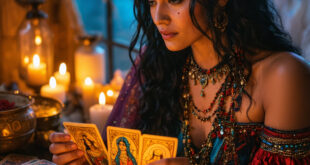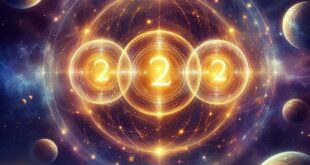Table of Contents
Numerology provides deep insights into your personality, hidden talents, secret gifts, strengths, and weaknesses. Numerology can reveal potential struggles and hurdles along your life’s path, as well as potential blessings and opportunities that you may encounter in the future. By knowing all of these important things about yourself, your life, and your future, you can make better-informed decisions that will make your life a happier one.
In this article we’ll answer common questions people have about how Numerology works, what are the meanings of certain numbers, how to use Numerology in your life and a lot more.
Common Questions about Numerology:
Is Numerology for real?
Numerology is a fascinating and profound system that has been practiced for centuries across various cultures.
It operates on the belief that numbers carry energetic vibrations and can provide insights into our lives.
Many people have experienced the benefits of numerology, finding guidance, self-awareness, and personal growth through its principles.
While it is important to approach numerology with an open mind and discernment, numerous individuals have found it to be a real and impactful tool for understanding themselves and their life’s journey.
Can Numerology predict your future?
Numerology offers a unique perspective on the patterns and cycles of life. While it does not provide precise predictions about specific events or outcomes, it can offer insights into the energies and influences surrounding certain periods. Numerology helps you understand your strengths, challenges, and life purpose, empowering you to make conscious choices and navigate your future with clarity. It is important to remember that we have free will and that our choices ultimately shape our path. Numerology serves as a helpful guide, offering valuable information to support your decision-making process.
Is Numerology reliable?
Numerology, like any other divinatory practice, relies on interpretation and personal understanding. Its reliability depends on the skill, knowledge, and intuition of the numerologist or practitioner providing the reading.
When working with a reputable and experienced numerologist, numerology can be a reliable tool for self-reflection, personal growth, and gaining insights into various aspects of life.
What is better, numerology or astrology?
Numerology and astrology are two distinct systems that offer different perspectives and insights. Both have their own strengths and can provide valuable information.
Numerology focuses on the symbolism and vibrations of numbers, offering insights into personality traits, life purpose, and life cycles.
Astrology, on the other hand, examines the positions and movements of celestial bodies to gain insights into personality, relationships, and future trends.
The choice between numerology and astrology ultimately depends on personal preference and the type of guidance and understanding you seek. Some individuals find value in combining both systems for a more comprehensive view of their lives.
Can numerology change your life?
Numerology is not a magic wand that can instantly change your life, but it can be a powerful catalyst for personal growth and transformation. By gaining insights into your strengths, weaknesses, and life purpose, numerology empowers you to make conscious choices and align your actions with your true potential.
It provides a roadmap for personal development, allowing you to recognize patterns, overcome challenges, and embrace opportunities. Numerology can be a tool for self-reflection, helping you make positive changes and create a life that is more aligned with your authentic self.
When used as a means for self-reflection and personal growth, numerology has the potential to bring positive transformation and enhance your life’s journey.
How does numerology work?
Numerology is based on the belief that numbers hold energetic vibrations and symbolism that can offer insights into various aspects of life. It operates on the principle that each number has a specific meaning and significance. Numerologists analyze these numbers, such as your birth date and name, to calculate and interpret your unique numerical profile. By understanding the patterns, cycles, and symbolism associated with numbers, numerology helps individuals gain self-awareness, make informed decisions, and navigate their life’s journey with greater clarity.
What is older, numerology or astrology?
Numerology and astrology have both been practiced for thousands of years and have ancient roots. It is challenging to determine which one is older, as they emerged in different cultures and developed independently.
Numerology has its origins in ancient civilizations like Babylon, Egypt, and China, while astrology dates back to the ancient civilizations of Mesopotamia, Egypt, and India.
Both systems have evolved and gained significance throughout history, making them invaluable tools for self-understanding and guidance.
Is numerology true or false?
Numerology, like any divinatory practice, is a belief system that can offer valuable insights and guidance. The truth of numerology lies in its ability to provide individuals with a deeper understanding of themselves and their life’s journey. It operates on the principle that numbers hold energetic vibrations and symbolism that can be interpreted and applied to various aspects of life. While some may approach numerology with skepticism, many people have found it to be a transformative and enlightening tool for personal growth and self-discovery.
Who has the first world record in numerology?
There is no specific world record recognized for numerology. Numerology is a practice that involves interpretation and personal understanding, and it does not lend itself to quantifiable records in the same way as athletic achievements or other measurable feats.
However, there have been notable individuals throughout history who have made significant contributions to the field of numerology, such as Pythagoras, a Greek philosopher and mathematician, who is often credited with developing the modern system of numerology.
How accurate is numerology?
The accuracy of numerology readings can vary depending on factors such as the skill and experience of the numerologist, the quality of the information provided, and the level of interpretation involved. Numerology provides a framework for understanding oneself and life’s patterns, but it is not a precise science that can predict specific events with absolute certainty. The accuracy of numerology lies in its ability to offer insights, guidance, and self-reflection, allowing individuals to make informed choices and navigate their lives with a greater sense of purpose and direction.
How do you use numerology in your life?
Personally, numerology can be used in various ways to enhance self-awareness and personal growth. By understanding my life path number and other aspects of my numerological profile, I gain insights into my strengths, challenges, and life purpose. I use numerology to make conscious choices aligned with my true potential and to navigate different life cycles and transitions. Numerology also helps me understand my relationships and compatibility with others, providing valuable insights into communication styles and areas of harmony or potential conflicts. Overall, numerology serves as a powerful tool for self-reflection, decision-making, and personal development, helping me lead a more fulfilling and purposeful life.
What is the most powerful number in numerology?
Numerology does not attribute power to one specific number. Each number carries its own unique energy and symbolism, and its significance depends on the context and individual interpretation.
However, in some numerological systems, the number 11 is considered a highly spiritual and powerful number, representing intuition, enlightenment, and spiritual awakening.
It is often associated with individuals who have a strong sense of purpose and a profound connection to higher realms of consciousness.
Which numerology number is smartest?
Each number in numerology has its own strengths and qualities, and intelligence is a multifaceted trait that cannot be solely determined by numerology. Intelligence is influenced by various factors such as education, life experiences, and personal abilities. Numerology focuses more on understanding personality traits, life purpose, and the energetic vibrations associated with numbers, rather than measuring intelligence.
What is the luckiest number in numerology?
Numerology does not attribute inherent luckiness to a specific number. Luck is a subjective concept and can vary from person to person. However, in some cultures and beliefs, the number 7 is often considered lucky. It is associated with spirituality, introspection, and inner wisdom. The number 7 is also frequently regarded as a symbol of completeness and perfection. Keep in mind that luck is influenced by personal beliefs and experiences, and numerology provides a framework for self-reflection rather than guaranteeing specific outcomes.
What is the luckiest number in the universe?
The concept of a universally luckiest number is subjective and varies across different cultures and belief systems. There is no definitive answer to this question as it largely depends on personal beliefs and cultural traditions. In numerology, different numbers hold different symbolism and energetic vibrations, and individuals may resonate with certain numbers based on their own experiences and interpretations.
Does the Bible speak of numerology?
The Bible contains various instances where numbers hold symbolic meanings and are used metaphorically to convey spiritual concepts. Numerology, as it is understood today, is not explicitly discussed in the Bible as a divinatory practice. However, numbers are frequently used in biblical narratives to represent divine order, spiritual significance, and prophetic symbolism.
The interpretations of numbers in biblical texts often rely on historical and cultural contexts, and different scholars and religious traditions may offer varying perspectives on their meanings.
What is the God number in the universe?
The concept of a specific “God number” is not widely recognized in numerology. The idea of a divine or sacred number can vary across different spiritual and religious traditions. In numerology, various numbers can hold spiritual significance or represent aspects of divine energy.
For example, the number 1 often symbolizes unity or the divine source, while the number 3 can represent the trinity or divine manifestation.
What is the rarest lucky number?
In numerology, numbers are not classified as rare or common in terms of luckiness. However, certain numbers may be considered rare due to their unique properties or associations in specific cultural contexts.
7 is usually considered a lucky number. If you see it very often, that may mean your Guardian Angel is sending you a sign to help you manifest luck into your life.
What is the most magical number?
The idea of a magical number is subjective and can vary depending on personal beliefs and cultural traditions.
Numerology attributes unique qualities and symbolism to different numbers, but the concept of a universally magical number is not widely recognized in numerological practices. The interpretation and significance of numbers are subjective and can vary based on individual experiences and cultural contexts.
1 is considered a Divine number. Because of its power to connect you to the Divine Source and help you manifest your desires, some people see it as a Magical number.
7 is considered a lucky number.
8 is considered a wealthy number.
When you combine these 3 numbers, you can get a very powerful, magical number.
 OfferJOY.com Relationship, Astrology, Numerology, Save Money, Make Money
OfferJOY.com Relationship, Astrology, Numerology, Save Money, Make Money


